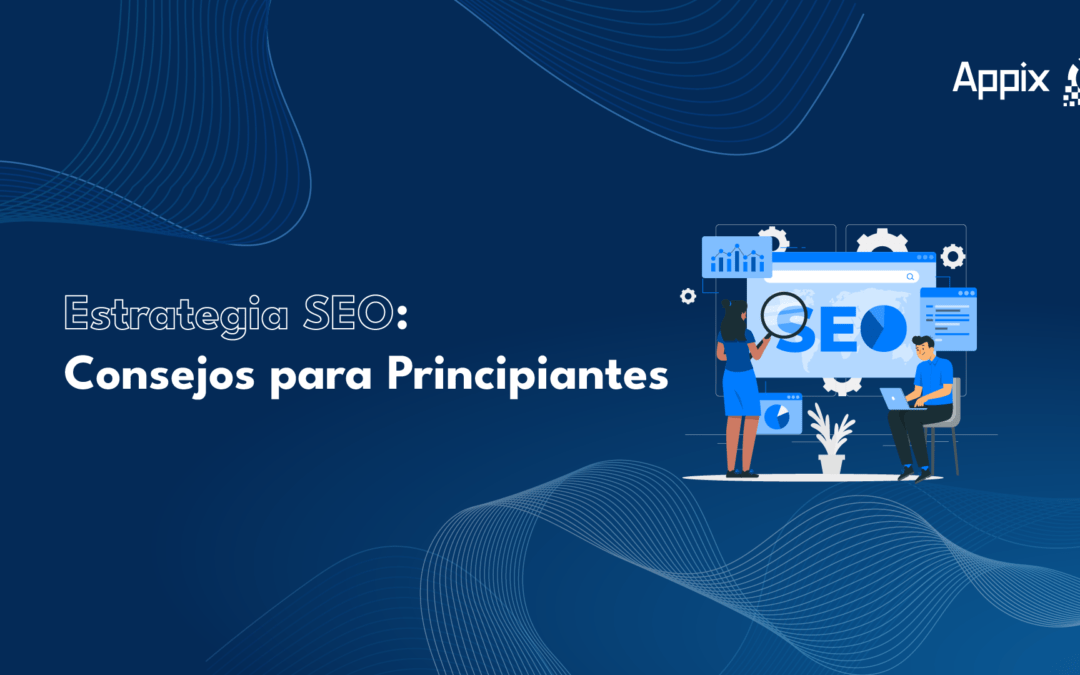La estrategia SEO (Search Engine Optimization) es una herramienta esencial para cualquier persona que desee aumentar la visibilidad de su sitio web en los motores de búsqueda. Si eres nuevo en el mundo del SEO, puede parecer un tema complicado y abrumador. Sin embargo, con los consejos correctos, puedes empezar con buen pie y ver resultados positivos en poco tiempo. Aquí te dejamos algunos consejos para principiantes en SEO.

- 1. Entiende los Fundamentos del SEO
- 2. Investiga Palabras Clave
- 3. Optimiza tu Contenido
- 4. Mejora la Estructura de tu Sitio Web
- 5. Optimiza para Móviles
- 6. Mejora la Velocidad de Carga de tu Sitio
- 7. Construye Enlaces de Calidad
- 8. Utiliza Etiquetas y Metadatos
- 9. Monitorea y Ajusta tu Estrategia
- 10. Sé Paciente y Persistente
1. Entiende los Fundamentos del SEO
Antes de empezar a optimizar tu sitio web, es crucial entender qué es el SEO y cómo funciona. SEO es el proceso de mejorar tu sitio web para aumentar su visibilidad en los resultados orgánicos de los motores de búsqueda como Google. Los motores de búsqueda utilizan algoritmos complejos para determinar qué páginas mostrar en respuesta a una búsqueda. El SEO se enfoca en mejorar diferentes aspectos de tu sitio web para alinearse con estos algoritmos.
2. Investiga Palabras Clave
Las palabras clave son los términos que las personas escriben en los motores de búsqueda para encontrar información. Una de las primeras cosas que debes hacer es investigar y seleccionar las palabras clave correctas para tu contenido. Usa herramientas como Google Keyword Planner, Ahrefs, o SEMrush para identificar palabras clave relevantes y con alto volumen de búsqueda. Una vez que tengas una lista de palabras clave, incorpóralas de manera natural en tu contenido.
3. Optimiza tu Contenido
El contenido es el rey en la estrategia SEO. Asegúrate de crear contenido relevante, valioso y de alta calidad que responda a las necesidades y preguntas de tu audiencia. Cada pieza de contenido debe tener una palabra clave principal y varias palabras clave secundarias. Utiliza estas palabras clave en los títulos, subtítulos, y a lo largo del texto de manera natural. Además, es importante mantener una buena densidad de palabras clave y evitar el keyword stuffing.
4. Mejora la Estructura de tu Sitio Web
La estructura de tu sitio web juega un papel crucial en el SEO. Un sitio bien estructurado facilita que los motores de búsqueda rastreen e indexen tus páginas. Asegúrate de que tu sitio tenga una jerarquía clara, con categorías y subcategorías bien definidas. Utiliza URLs amigables con palabras clave y crea un mapa del sitio para ayudar a los motores de búsqueda a entender la estructura de tu sitio.
5. Optimiza para Móviles
Cada vez más personas utilizan dispositivos móviles para navegar por internet. Google ha implementado el enfoque de Mobile-First Indexing, lo que significa que la versión móvil de tu sitio web es la que se considera principal para el ranking. Asegúrate de que tu sitio web sea responsivo y ofrezca una experiencia de usuario fluida en todos los dispositivos.
6. Mejora la Velocidad de Carga de tu Sitio
La velocidad de carga de tu sitio web es un factor importante para el SEO. Los usuarios y los motores de búsqueda prefieren sitios que cargan rápidamente. Utiliza herramientas como Google PageSpeed Insights para evaluar la velocidad de tu sitio y hacer las mejoras necesarias, como comprimir imágenes, habilitar la compresión y reducir el tiempo de respuesta del servidor.
7. Construye Enlaces de Calidad
Los enlaces entrantes, también conocidos como backlinks, son enlaces desde otros sitios web hacia el tuyo. Los backlinks de calidad son un factor importante para el SEO, ya que indican a los motores de búsqueda que tu sitio es confiable y relevante. Construye enlaces de calidad creando contenido valioso que otros quieran enlazar y colaborando con otros sitios web y blogs en tu industria.
8. Utiliza Etiquetas y Metadatos
Las etiquetas y los metadatos ayudan a los motores de búsqueda a entender el contenido de tu sitio web. Asegúrate de utilizar etiquetas de título (title tags) y meta descripciones (meta descriptions) efectivas en cada página de tu sitio. Estos deben incluir tus palabras clave principales y ser descriptivos para atraer clics desde los resultados de búsqueda.
9. Monitorea y Ajusta tu Estrategia
El SEO no es un esfuerzo de una sola vez; es un proceso continuo. Utiliza herramientas como Google Analytics y Google Search Console para monitorear el rendimiento de tu sitio web. Analiza los datos para ver qué está funcionando y qué no, y ajusta tu estrategia en consecuencia. Mantente actualizado con las últimas tendencias y cambios en los algoritmos de los motores de búsqueda para asegurar que tu sitio siga siendo competitivo.
10. Sé Paciente y Persistente
El SEO requiere tiempo y esfuerzo. No esperes ver resultados inmediatos, ya que puede llevar varios meses antes de que empieces a ver mejoras significativas en tu ranking. Sé paciente y persistente, y sigue trabajando en la optimización de tu sitio web de manera constante.
Siguiendo estos consejos para principiantes, estarás en el buen camino para mejorar la visibilidad de tu sitio web en los motores de búsqueda y atraer más tráfico orgánico. Recuerda, el SEO es una inversión a largo plazo que puede traer grandes beneficios si se hace correctamente. ¡Buena suerte en tu viaje de SEO! Si quieres seguir aprendiendo más de SEO, consulta nuestro blog o si necesitas ayuda con tu estrategia, contáctanos para más información.

